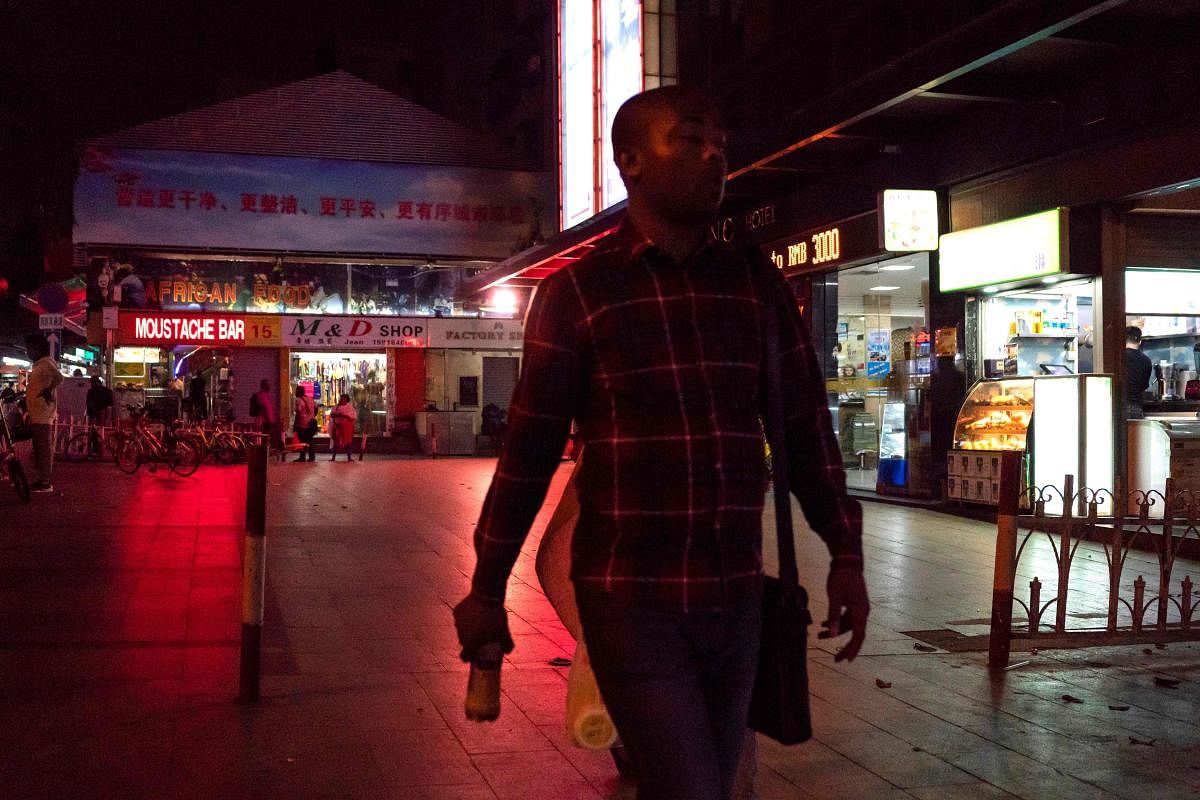
Huddled under a highway bridge with a small bag of belongings, a 19-year old student from Ivory Coast was desperately dialling his few contacts in China.
The student said he arrived in the southern city of Guangzhou last week, after completing his quarantine in another city, during a coronavirus clampdown that several African countries and Africans in Guangzhou say has unfairly targeted them.
"I really need help. I just don't want to sleep on the streets again," he said on Monday, asking not to be identified by name.
He came to China to study the language but his university shut because of the coronavirus. Hotels kept turning him away, but later on Monday he said he had found one.
Several African ambassadors wrote to China's foreign minister last week, calling for the "cessation of forceful testing, quarantine and other inhuman treatments meted out to Africans".
Ghana's foreign minister on Saturday called in China's ambassador to convey the government's concern.
China's foreign ministry said on Monday all foreigners are treated equally. But it also said virus controls on Africans would be lifted, apart from confirmed cases and those who have had close contact with them.
"African friends will be treated fairly, justly and amicably in China," the ministry said.
Many foreigners in China say they have faced suspicion as the country brought its own outbreak under control, only to see new cases brought from other countries. China has barred entry to most foreigners, and the vast majority of imported cases of the disease have come from Chinese nationals returning home.
In Guangzhou, a hub for African traders, authorities said on Tuesday that 111 Africans had tested positive for the coronavirus, while a total of 4,553 Africans had undergone testing since April 4, state media reported.
Several African residents said the black community was being unfairly targeted for stricter checks.
"If they do this to all foreigners, then it's not a problem, but it's only black people," Soumana Toudou, a garment trader from Niger, told Reuters by WhatsApp. He said he was undergoing his second 14-day quarantine because the authorities did not believe he had completed his first.
Such decisions are made at the local level and Reuters could not independently confirm this.
The scrutiny from the authorities had triggered hostility from Chinese residents, one student said.
"The selective testing has set the Guangzhou locals into panic, thinking black people are carrying the virus," he said. He declined to be identified.
A Communist Party social worker, speaking on condition of anonymity, told Reuters on Monday that black people were specifically being made to enter a period of quarantine.
Last week, authorities announced that two neighbourhoods popular with Africans would be locked down to curb the coronavirus after five Nigerians tested positive.
On Monday, the U.S. consulate general in Guangzhou advised African-Americans, or those who believe Chinese officials may suspect them of having contact with African nationals, to avoid the city.
The provincial foreign affairs office provided no immediate comment to Reuters about complaints from Africans and embassies that Africans had been unfairly targeted.